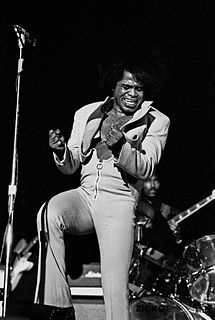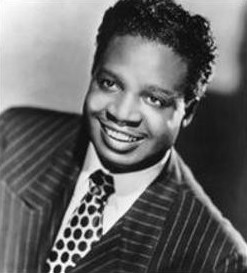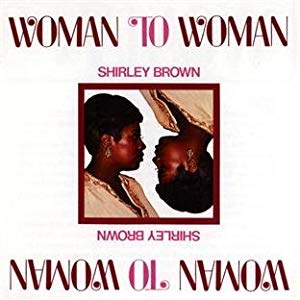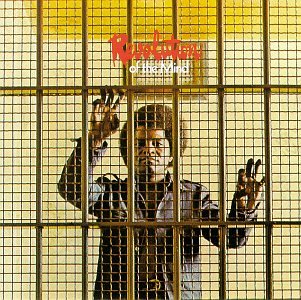Related Research Articles

James Joseph Brown was an American singer, songwriter, dancer, musician, record producer and bandleader. A progenitor of funk music and a major figure of 20th century music dance. He is often referred to by the honorific nicknames "Godfather of Soul", "Mr. Dynamite", and "Soul Brother No. 1". In a career that lasted over 50 years, he influenced the development of several music genres. Brown was one of the first ten inductees into the Rock and Roll Hall of Fame at its inaugural induction dinner in New York on January 23, 1986.

Sam & Dave were an American soul and R&B duo who performed together from 1961 until 1981. The tenor (higher) voice was Sam Moore and the baritone/tenor (lower) voice was Dave Prater (1937–1988).

The Stylistics are an American, Philadelphia soul group that achieved their greatest chart success in the 1970s. They formed in 1968, with a lineup of singers Russell Thompkins Jr., Herb Murrell, Airrion Love, James Smith, and James Dunn. All of their US hits were ballads characterized by the falsetto of Russell Thompkins Jr. and the production of Thom Bell. During the early 1970s, the group had twelve consecutive R&B top ten hits, including "Stop, Look, Listen", "You Are Everything", "Betcha by Golly, Wow", "I'm Stone in Love with You", "Break Up to Make Up", and "You Make Me Feel Brand New". Murrell brought Eban Brown in to replace Russell Thompkins Jr. in 2000.

Sex Machine is a 1970 double album by James Brown. It showcases the playing of the original J.B.'s lineup featuring Bootsy and Catfish Collins, and includes an 11-minute rendition of the album's title song, different from the original recording of the title song which was released as a two-part single in 1970.

Roy James Brown was an American R&B singer, songwriter and musician, who had a significant influence on the early development of rock and roll and the direction of R&B. His original song and hit recording "Good Rockin' Tonight" has been covered by many artists including Wynonie Harris, Elvis Presley, Bruce Springsteen, Paul McCartney, Joe Ely, Ricky Nelson, Jerry Lee Lewis, Pat Boone, James Brown, the Doors, and the rock group Montrose. Brown was one of the first popular R&B singers to perform songs with a gospel-steeped delivery, which was then considered taboo by many churches. In addition, his melismatic, pleading vocal style influenced notable artists such as B.B. King, Bobby Bland, Elvis Presley, Jackie Wilson, James Brown and Little Richard.

This is a discography chronicling the musical career of James Brown. Brown joined Bobby Byrd's vocal group The Flames in 1953, first as a drummer, and then as leading front man. Later becoming The Famous Flames, they signed with Federal Records in 1956 and recorded their first hit single, "Please, Please, Please", which sold over a million copies. Brown was discovered by Famous Flames founder Bobby Byrd, who recruited him for his vocal group.

Chuck Jackson is an American R&B singer who was one of the first artists to record material by Burt Bacharach and Hal David successfully. He has performed with moderate success since 1961. His hits include "I Don't Want to Cry," "Any Day Now," "I Keep Forgettin'", and "All Over the World".

Meet the Supremes is the debut studio album by The Supremes, released in late 1962 on Motown. The LP includes the group's earliest singles: "I Want a Guy", "Buttered Popcorn", "Your Heart Belongs to Me" and "Let Me Go the Right Way". The earliest recordings on this album, done between fall 1960 and fall 1961, feature the Supremes as a quartet composed of teenagers Diana Ross, Mary Wilson, Florence Ballard, and Barbara Martin. Martin left the group in early 1962 to start a family, and the other three girls continued as a trio. Martin is not pictured on the album because of her departure earlier in the year, although her vocals are present on the majority of the recordings on the album. She does have a spoken interlude line on the bridge of the song "(He's) Seventeen", and also sings lead on "After All", a song recorded for but not originally included on the album. Along with these songs, Ballard and Wilson are heard out front on other songs as well. Wilson sings lead on "The Tears" and "Baby Don't Go"; Ballard has leads on a handful of songs as well, including "Buttered Popcorn" and the short intro line to "Let Me Go the Right Way".

"Kansas City" is a rhythm and blues song written by Jerry Leiber and Mike Stoller in 1952. First recorded by Little Willie Littlefield the same year, the song later became a chart-topping hit when it was recorded by Wilbert Harrison in 1959. "Kansas City" is one of Leiber and Stoller's "most recorded tunes, with more than three hundred versions", with several appearing in the R&B and pop record charts.

Billy Ward and his Dominoes were an American R&B vocal group. One of the most successful R&B groups of the early 1950s, the Dominoes helped launch the singing careers of two notable members, Clyde McPhatter and Jackie Wilson.
Dyke and the Blazers was an American funk band led by Arlester Christian. The band was formed in 1965, and recorded up until Christian's death in 1971. Among their most successful records were the original version of "Funky Broadway" (1966) and "Let a Woman Be a Woman" (1969).
"Cold Sweat" is a song performed by James Brown and written with his bandleader Alfred "Pee Wee" Ellis. Brown recorded it in May 1967. An edited version of "Cold Sweat" released as a two-part single on King Records was a No. 1 R&B hit, and reached number seven on the Pop Singles chart. The complete recording, over 7 minutes long, was included on an album of the same name.

"Mother Popcorn " is a song recorded by James Brown and released as a two-part single in 1969. A #1 R&B and #11 Pop hit, it was the highest-charting of a series of recordings inspired by the popular dance the Popcorn which Brown made that year, including "The Popcorn", "Lowdown Popcorn", and "Let a Man Come In and Do the Popcorn".

"Woman to Woman" is the title of a 1974 deep soul single recorded by Shirley Brown for whom it was a #1 R&B hit.

Pure Dynamite! Live At The Royal is a 1964 live album by James Brown and The Famous Flames. Originally issued on King Records, it was the live follow-up to Brown's 1963 Live at the Apollo LP, and like that album, reached the Top 10 of the Billboard album charts, peaking at #10. It was recorded live at the Royal Theatre in Baltimore, Maryland, a popular venue for R&B artists of the day. The album takes its title from Brown's most famous nickname at the time, "Mr. Dynamite".

Richard Wayne Wylie, often known as Popcorn Wylie, was an American pianist, bandleader, songwriter, occasional singer, and record producer who was influential in the early years of Motown Records and was later known for his work on many records in the Northern soul genre.

Revolution of the Mind: Live at the Apollo, Volume III is a live double album by James Brown released in 1971. As its subtitle suggests, it is Brown's third album recorded at the Apollo Theater, following the original Live at the Apollo (1963) and Live at the Apollo, Volume II (1968). After a triple album project recorded in France was cancelled because Brown had signed with a new label, Polydor, in 1971, Brown elected to do many of the same songs on a New York project. Unlike the cancelled live album, this was assembled from the best live takes from a week of shows, at the Apollo. Unlike previous releases live albums, this was criticized for poor sound balance and excessive eroticism. Note that “Escapism“/ “Make it Funky“, tracks four and five actually opened the show it was taken from. Despite flaws, it sold well and became one of the all-time most sampled sets.
"Let Yourself Go" is a 1967 song by James Brown.
"Lowdown Popcorn" is a funk instrumental recorded by James Brown. It was the third hit single Brown recorded in 1969 that was inspired by the popular dance the Popcorn, preceded by the instrumental "The Popcorn" and the song "Mother Popcorn". It charted #16 R&B and #41 Pop.
"The Popcorn" is a 1969 instrumental written and recorded by James Brown. It was the first of several records Brown made inspired by the popular dance of the same name. Released as a single on King Records, it charted #11 R&B and #30 Pop. It also appeared as the title track of an album released the same year. The recording's bassline shares great similarities with Cold Sweat. In fact, it's a revamp of an earlier single "Bringing Up the Guitar" by Alfred Ellis and The Dapps, featuring the same band on this recording. The single's B-side, "The Chicken", written by Brown's saxophonist and bandleader Alfred Ellis, was prominently covered by jazz bassist Jaco Pastorius on his live albums Invitation and The Birthday Concert.
References
- ↑ White, Cliff (1991). "Discography". In Star Time (pp. 54–59) [CD booklet]. New York: PolyGram Records.